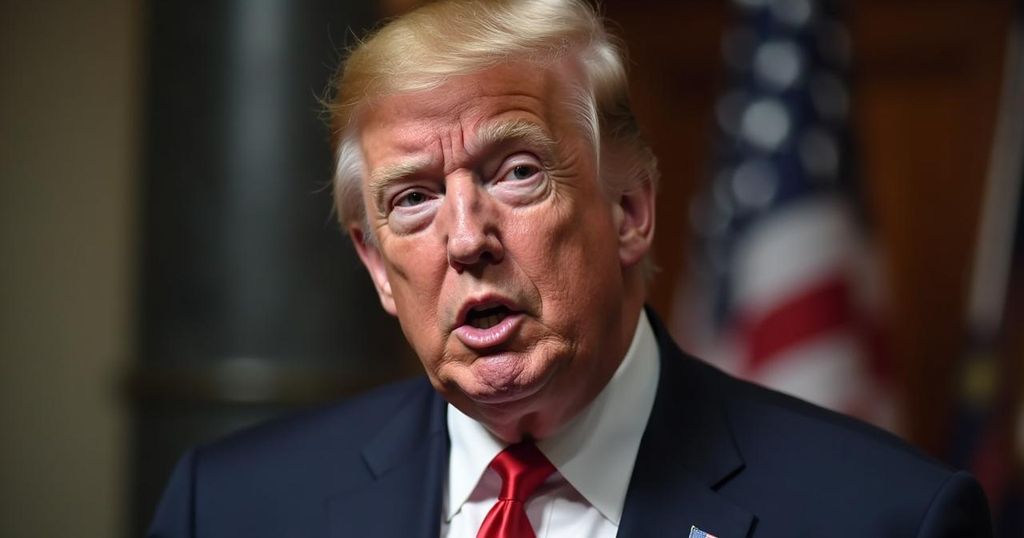Mike Johnson Raises Unfounded Concerns Over Electoral Integrity and Non-Citizen Voting

Republican House Speaker Mike Johnson has made unsubstantiated claims regarding potential election cheating and non-citizen voting in the upcoming 2024 election. During an interview on “Face the Nation,” he echoed Donald Trump’s prior allegations of election fraud. Johnson’s remarks have sparked further discussions about the integrity of electoral processes and the implications of proposed legislation, such as the SAVE Act, which seeks to require proof of citizenship for voter registration.
In a recent interview, Republican House Speaker Mike Johnson alleged, without presenting any substantiating evidence, that there will be “cheating” in the upcoming 2024 election and suggested that non-citizens would cast votes. Johnson made these statements during an appearance on CBS’s “Face the Nation,” echoing unfounded assertions reminiscent of former President Donald Trump’s claims of election fraud ahead of the 2020 election, which Johnson contested by voting against the certification of President Joe Biden’s victory. During the interview, when confronted by moderator Margaret Brennan regarding the legality of non-citizens voting, Johnson acknowledged that it is illegal but contended that several states lack adequate proof of citizenship requirements, allowing non-citizens to register. He referenced efforts by Virginia Governor Glenn Youngkin to “clean up” voter rolls, despite legal challenges from the Justice Department, which argues that Virginia’s actions may violate the National Voter Registration Act by failing to allow a necessary period for voters to correct potential errors. Brennan pointed out the contradiction in Johnson’s remarks, where he simultaneously acknowledged state measures to enhance electoral integrity and expressed unfounded concerns that might undermine public confidence in the electoral process. Reacting to further conspiracy theories, Johnson speculated that Democrats had deliberately opened borders to boost the number of non-citizens voting, claiming that “a lot of people theorize that that was so that they could have non-citizens to vote” without providing verifiable evidence. Johnson advocated for the SAVE Act, a proposed law aimed at instituting proof of citizenship requirements for voter registration. However, this bill faced opposition from Democrats, who deem it a form of voter suppression that could disenfranchise eligible citizens lacking immediate access to citizenship documentation. When questioned whether a repeat of the January 6 insurrection would occur in 2025, Johnson expressed hope for a peaceful transition of power, yet he did not commit to certifying the election results if Vice President Kamala Harris were to become the victor, indicating that certification would depend on the election being “free, fair and legal.” Former Representative Liz Cheney voiced her concerns regarding Johnson’s propensity to espouse conspiracy theories, arguing that he would not fulfill his constitutional obligations, particularly if he were required to certify election results unfavorable to his party. In conclusion, Johnson’s unfounded allegations regarding electoral integrity and his reluctance to unequivocally commit to the certification of the 2024 election results raise significant concerns about the potential for undermining public trust in the democratic process.
The discussion surrounding election integrity has resurfaced in the political landscape, particularly with the approach of the 2024 elections. Allegations of voter fraud, especially concerning non-citizen voting, have been popularized by various political figures, most notably Donald Trump, following the contentious 2020 election. These discussions often occur in the context of legislative efforts aimed at tightening voter registration processes, creating divisions between political parties regarding electoral policies and voter access.
Mike Johnson’s assertions of potential election cheating and non-citizen voting lack evidentiary support and reflect broader conspiracy theories that have permeated political discourse. These statements, along with his ambiguous stance on certifying election results, pose a threat to the perceived integrity of the electoral process. As the 2024 elections draw near, it is imperative for leaders to foster confidence in democratic institutions rather than propagate unfounded fears.
Original Source: www.rollingstone.com







